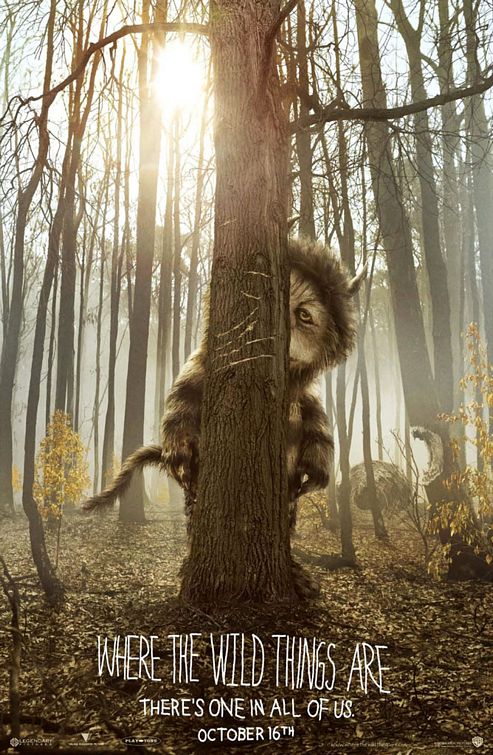The story loosely follows the book but only structurally. It leaves a lot of room for interpretation, which I think was a necessary choice to make this a feature film longer than ten minutes. Luckily, the interpretation was well done and really drew upon feelings people have about their childhood, but I'd like to say that this is not a movie for children. First of all, the characters on the island's heads are disproportionate to their bodies, which makes the facial features larger. While I enjoy this now in an artistic sense, when I was young the exaggerated facial features creeped me out a bit, and I could fore-see it intimidating small children, especially if there are large teeth and threats of being eaten. The overall tone of the movie has a threatening, uncertain sort of atmosphere, almost as if the viewer feeling like there isn't peace or that the peace won't last long. Also, I don't think this is a children's film because the mess Max created doesn't get resolved, he just leaves. There is unrest both when he arrives and when he leaves, but tough he tries he doesn't solve it or even clean up the mess he makes. Before he leaves one of the monsters says that Max is sort of insignificant, that he's too small to effect change. There's also a weird part where Max climbs into KW's mouth to hide.. and these kinds of things aren't usually what you'd see in your typical children's film.
As an adult film however, this movie was great. I thought that the way the movie was set up expressed an impression a person would have of their childhood when they were reminiscing about it. Max is childhood personified. He has an amazing imagination and lives his life from the perspective of this imagination. Everything is taken to the extreme, like when a child wants something but doesn't get it, it's the end of the world, or if a child is excited about something a whole new world is possible. The story was almost dystopian because of the fact that Max can't make the monsters happy. After a while he just stopped trying and went home to his mom so that he didn't have to deal with it anymore. It's almost like in Peter Pan where the lost boys need a mother, but there's no Wendy here. Max just sort of used the monsters to realize that he needed a mother, because he was as lost and as afraid as they were. The film finishes with a feel good moment as Max eats dinner with his mom after he comes home. There's a sense that everything worked out and he has love, which was the problem with the monsters, they didn't have anyone loving them.
Though I'd be hesitant to take someone under 6 or 7 to see it, it was a good movie about a child's imagination and search for love

